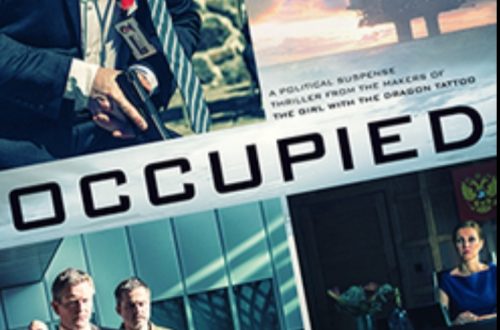This is a guest post by Francesca L
‘Much is currently being written and said about the London School of Economics’ acceptance of a £1.5 million grant from Saif al-Islam Gaddafi’s foundation.
The great bastion of the Left has been increasingly accepting money from a variety of absolutist Middle Eastern leaders for the last decade. This is part of wider trend for the LSE, which increasingly sees itself as a business providing higher education services, rather than the ideological fortress of Ralph Miliband and other prominent Marxist thinkers. As a former postgraduate student, our main complaint was that teaching and learning services were poorly thought out; that our most eminent professors were more interested in making a name for themselves and securing lucrative writing contracts than teaching us the same old courses. We approached the management of the department and of postgraduate services, and were told that improvements would be made the next year, when we had all graduated. The lack of adequate facilities, or of enough books in the library, showed us that this influx of Middle Eastern money was not being spent on the students.
This new Libyan embarrassment must be familiar for Howard Davies and the LSE’s management committees. I can remember a muted furore over the naming of a new lecture theatre after Abu Dhabi’s late Sheikh Zayed. The opposition was entirely ineffectual. Sheikh Zayed may have spent many millions of Abu Dhabi’s oil wealth on charitable and cultural institutions, but he was an avowed anti-Semite and Holocaust denier. This seems to have been no problem for the LSE: he was an anti-Semite, but he was rich. Many things offend the political activist students of the LSE, but anti-Semitism doesn’t appear to be one of them. After all, it probably wasn’t anti-Semitism, but a perfectly valid critique of the Zionist entity. Indeed, the building in which the lecture theatre resides is still called the ‘New Academic Building’, just waiting for a rich foreign magnate or dignitary to donate enough to enshrine their own name on the building.
At Harvard, something else happened. In 2004, a courageous student at Harvard’s School of Divinity – with the backing of Larry Summers – forced that eminent School to hand back a grant of $2.5 million from Sheikh Zayed’s foundation. It seemed unseemly for a school of Divinity to accept money from a man who exemplified religious intolerance. Such things do not bother the LSE – at least, not when money is involved.
None of this should be surprising, I suppose. My master’s degree looks very shiny in a laminated folder. For postgraduate students, the poverty of postgraduate teaching (in the department of International Relations at least) must be kept closely under wraps. To acknowledge the profound ineptitude of the central course, the lack of supervision, the disregard shown by some professors to some students – none of that would look terribly good on the CV. And we all paid so much for our degrees, it would be a bit shamefaced to publicise that we had been short-changed. Admitting your degree wasn’t fantastically challenging and brilliantly enlightening is a bit like shooting yourself in the foot. Many fellow students were unhappy with the standard of teaching, especially the minority who had experience of other British universities.
Even as a home student, I paid the same as a foreign classmate: near enough £14 000. That’s just over triple what I would have paid for a similar degree course at King’s College London. The London School of Economics has no problem accepting money – from students, from anyone.
It is important to contrast the LSE’s attitude to money with its attitude to protecting students. Recently, LSE’s Palestine Society hosted Abdel Bari Atwan, giving a talk entitled “How much influence does the Israel Lobby exert on US and UK Foreign Policy?” It must have been an interesting talk, no doubt influenced by the pioneering research of Stephen Walt and John Mearsheimer, who in 2007 decided that the war on Iraq was launched by America at the behest of Israeli interests. This thesis deserves proper consideration, but it did not get much of a hearing. The meeting quickly degenerated into a morass of name-calling and intimidation of Jewish and Israel Society students, who had decided to see if Atwan had changed his mind. In 2006, he described the Israeli lobby in the UK:
“So yes, they are after us, all the time. They have the power, they have the means, they are native English, they are native British, they know the culture, they know how to use the media, they are very organised, they’ve got the money, they’ve got the capabilities.”
And of course, he is a great friend of Israel:
“If the Iranian missiles strike Israel, by Allah, I will go to Trafalgar Square and dance with delight…”
Knowing that Abdel Bari Atwan was prone to such statements, students from the Jewish Society met with the LSESU precisely in order to ensure that the meeting was to be hosted in a responsible way. They were brushed off. The meeting, hosted by Professor Martha Mundy was chaotic, students who disagreed with the speaker were labelled “Nazis” and the whole ordeal left the Jewish students feeling victimised. The meeting had to be closed down by university security.
Ironically, it is this same Martha Mundy, on the management committee of the LSE’s Middle East Centre, who has repeatedly called for a boycott of Israeli universities. Her fellow committee member, John Chalcraft, argued for an academic boycott of Israel in a debate last month. This means that two of the four members of the management committee have actively endorsed a boycott designed to isolate and humiliate Jewish academics. The Middle East Centre at the LSE was set up with a £9.2 million grant from the Emirates Foundation.[1]
Anti-Zionism is not just prevalent among important members of staff at the LSE. During Operation Cast Lead in 2006, when I was a student at the LSE, some students thought it would be appropriate to set up checkpoints on Houghton Street – the main axis of campus. I was stopped by a young man wearing a red and white keffiyah (Hamas colours, though he almost definitely didn’t know that) who brusquely asked me for my papers. I told him to fuck off. He blocked my way and insisted that I show him my ‘papers’. I again tried to move past, but he blocked me. I asked him what he was doing, and he told me that this was how it felt to be a Palestinian at an Israeli army checkpoint. I told him it wasn’t: that this was how it felt to be harassed on campus. To this, there was no reply, so I pushed past.
My point is that life for Jewish students, Israeli students, members of their respective societies is often quite difficult on campus. Particularly at the LSE, where anti-Israel sentiment is expressed vociferously and in terms that make some students feel deeply uncomfortable and unwelcome. The university has violated its own policies on limiting hate speech, and usually doesn’t deign to respond to the complaints and feedback of students. It should come as no surprise that so much overseas funding come from the pockets of regimes that view the LSE as a bastion – not of intellectual rigour, but of political compliance on their behalf. These are distinct issues, but they may explain why the LSE is so pathetic in response to events like the one detailed above, and raises new questions about where exactly some of this money is going. Receiving money from Gaddafi is mortifying, but as we can see, there are much better reasons for them to feel embarrassed’
[1] I should mention that one other member of the committee is Professor John Sidel, who taught me brilliantly, and was the highlight of my time at the LSE.
Alec Macph adds:
The Scottish Government must be hoping that no-one thinks to ask if any Libyan money found its way into the Calvinist Republic during a World Islamic Call Society led prayer mission in 2009, or from Libyan delegates who attended the Scottish-Islamic Foundation staged Eitsal conference in the same year.
habibi adds: It was LSE’s Palestine Society that invited Abdel Bari Atwan.
Another event featuring Ahron Cohen of Neturei Karta was cancelled after a wave of protest.
Other recent guests of the society have included weirdo and 9/11 troofer Charlie Veitch and Jody McIntyre, who says the mere creation of Israel in 1948 constituted occupation.
The society is also keen on Sameh Habeeb, the hate publisher who has used his Palestine Telegraph website to promote David Duke, Holocaust deniers, and a host of other extremists.
The society remains on form. Its upcoming guests are:
– Alan Hart on 1 March. Hart is a fanatical Israel hater and a 9/11 troofer (it was a CIA / Mossad joint venture).
– Hamas and Hezbollah promoter Jeremy Corbyn MP on 3 March. Incredibly, Corbyn has denied there is antisemtism in the self-styled pro-Palestinian movement while sharing a platform with Dyab Abou Jahjah, one of the worst antisemites on the planet.
– Tyrant lover and Hamas funder George Galloway on 7 March.


